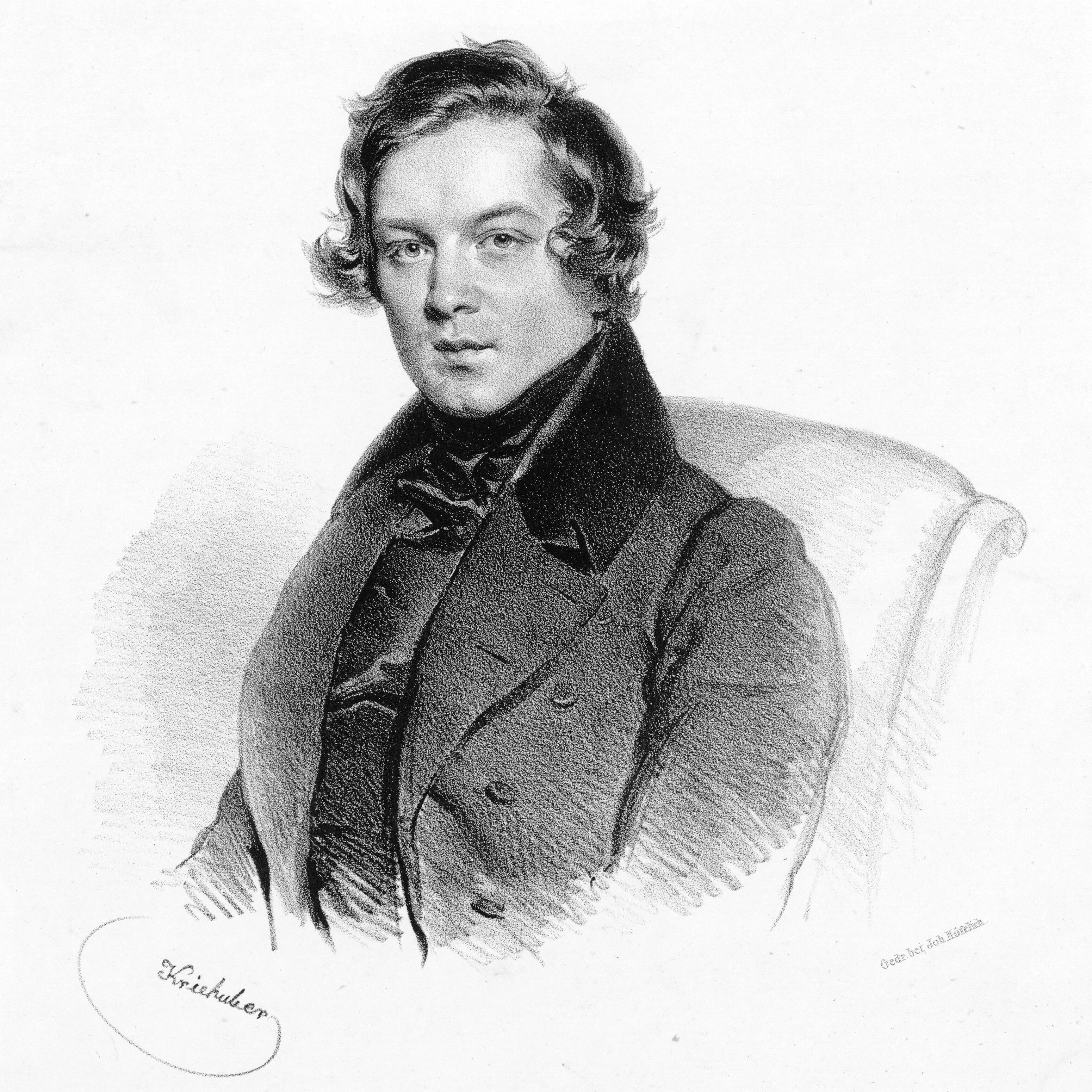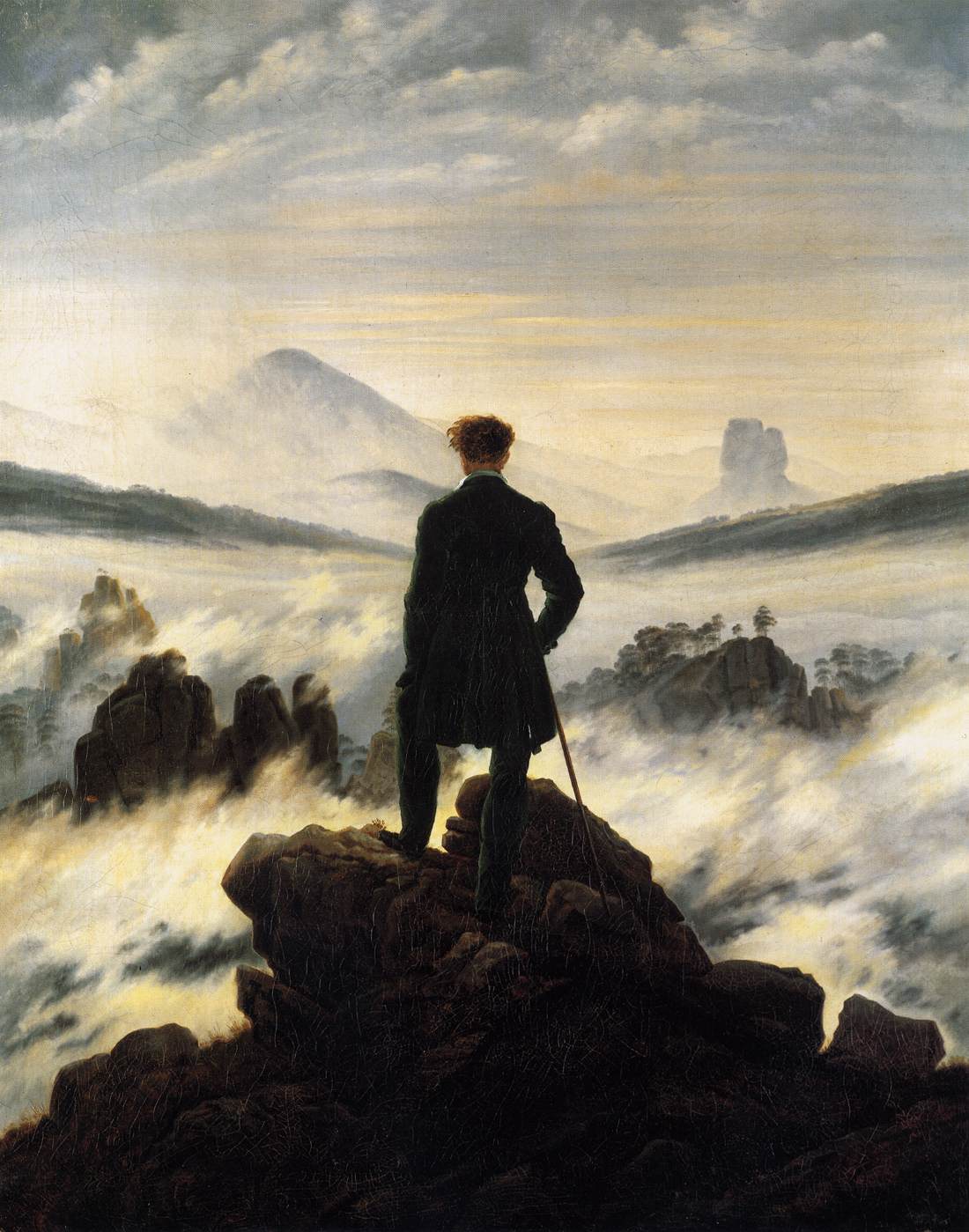Schumann - Manfred
Opéra Comique, Paris, Wednesday December 11 2013
Conductor: Emmanuel Krivine. Production and lighting: Georges Lavaudant. Sets and costumes: Jean-Pierre Vergier. Manfred: Pascal Rénéric. The Witch, The Phantom of Astarte: Astrid Bas. Destinies and Spirits: Anneke Luyten, Sarah Jouffroy, Olivier Dumait, Norman Patzke, Luc Bertin Hugault, Geoffroy Buffière, Cyrille Gautreau. The Abbot of St Maurice: Max Delor. Chorus: Les Eléments. La Chambre Philharmonique.
It will not last,
But it is well to have known it, though but once:
It hath enlarged my thoughts with a new sense,
And I within my tablets would note down
That there is such a feeling.
So here I am, noting down my feelings. It was the oft-mocked Marie-Aude Roux, in Le Monde, who spotted how neatly those lines from Manfred might apply to Schumann's work. "Contemporaneous with the opera Genoveva, the score rejects scenic pragmatism so as to better explore the possibilities of musical expression combined with declamation: akin to Berlioz’s Lélio, it is deemed unperformable." So says the Opéra Comique's web-site. It's certainly a disconcerting hybrid, with only disconnected fragments of music and lots of spoken verse. If it had gone on for three hours it would have been a trial, and if it there had been an interval it would have lost some punters (a few snook out sneakily during the interludes on Wednesday night). But it did not last - only 80 minutes - and I think it's well to have known it, though but once. It has at least enlarged my knowledge of Schumann, a composer I like.
This production suggested the work is not, in fact, unperformable. We may now have a tough time relating to all that romatic angst, but there's a big difference between being harangued in a theatre by a French actor, in French, and reading the original poem quietly at home. The poem remains undeniably and wonderfully readable:
We are the fools of Time and Terror: Days
Steal on us, and steal from us; yet we live,
Loathing our life, and dreading still to die.
In all the days of this detested yoke—
This vital weight upon the struggling heart,
Which sinks with sorrow, or beats quick with pain,
Or joy that ends in agony or faintness—
In all the days of past and future—for
In life there is no present—we can number
How few—how less than few—wherein the soul
Forbears to pant for death, and yet draws back
As from a stream in winter, though the chill
Be but a moment's.
What I mean is that quite probably in a less stylised, less "luvvy" production, with the poem recited in its own magnificent English in a more stoical way, and top-notch musical input, it would work. Even here, the French translation was quite beautiful, and Pascal Rénéric, miked, put in an impressive performance. But he was got up, to my eye at least, as Klaus Nomi, in a black, double-breasted tunic with a white face and hair standing on end; and indeed the whole production had an eighties look to it and was a touch more determinedly theatrical than convincing or moving. Design-wise, it was very evidently inspired by Caspar David Friedrich, especially his über-famous Der Wanderer über dem Nebelmeer:
The mists boil up around the glaciers; clouds
Rise curling fast beneath me, white and sulphury,
Like foam from the roused ocean of deep Hell,
Whose every wave breaks on a living shore,
Heaped with the damned like pebbles.—I am giddy...
wrote Byron, a year before Friedrich painted the picture. So, design-wise, mostly deepest black, with a gash of boiling mists across the back-drop, streaked as if from an ancient, scratched silent movie. In fact I don't know if the various projections - of a woman's face, of Alpine pastures, of gnarled trees, etc - were made for this show or taken from old films. Throwing up stage directions between scenes, like silent-era title cards, was a nice idea : "Scene 1—Manfred alone. A Gothic Gallery. —Time, Midnight." The chorus, all in black and white-faced as well, menacing us with red gloves and red flags, was not. The Abbot of St Maurice appearing, tall and gaunt on a pedestal at the rear, all white like a pope, was very striking. A mixed bag, like the work itself; not a resounding success, but well crafted, often handsome, and good in parts.
The "period" sound of La Chambre Philharmonique, warm and boxy, was engaging. But their intonation took me back over thirty years to when "authentic" meant out-of-tune, and the playing seriously lacked dynamic and rhythmic interest. I found myself reminded, at times, of a plodding harmonium. The singers were young and took it all very seriously. But my (admittedly overdemanding) thought was that we could have done with Gardiner, the Orchestra of the Age of Enlightenment, the Monteverdi Choir and a handful of luxury soloists to give Schumann his due. Still, the intrepid Opéra Comique and all the team must be congratulated for giving us this rare chance to "enlarge our thoughts".
Conductor: Emmanuel Krivine. Production and lighting: Georges Lavaudant. Sets and costumes: Jean-Pierre Vergier. Manfred: Pascal Rénéric. The Witch, The Phantom of Astarte: Astrid Bas. Destinies and Spirits: Anneke Luyten, Sarah Jouffroy, Olivier Dumait, Norman Patzke, Luc Bertin Hugault, Geoffroy Buffière, Cyrille Gautreau. The Abbot of St Maurice: Max Delor. Chorus: Les Eléments. La Chambre Philharmonique.
It will not last,
But it is well to have known it, though but once:
It hath enlarged my thoughts with a new sense,
And I within my tablets would note down
That there is such a feeling.
 |
| R. Schumann |
This production suggested the work is not, in fact, unperformable. We may now have a tough time relating to all that romatic angst, but there's a big difference between being harangued in a theatre by a French actor, in French, and reading the original poem quietly at home. The poem remains undeniably and wonderfully readable:
We are the fools of Time and Terror: Days
Steal on us, and steal from us; yet we live,
Loathing our life, and dreading still to die.
In all the days of this detested yoke—
This vital weight upon the struggling heart,
Which sinks with sorrow, or beats quick with pain,
Or joy that ends in agony or faintness—
In all the days of past and future—for
In life there is no present—we can number
How few—how less than few—wherein the soul
Forbears to pant for death, and yet draws back
As from a stream in winter, though the chill
Be but a moment's.
What I mean is that quite probably in a less stylised, less "luvvy" production, with the poem recited in its own magnificent English in a more stoical way, and top-notch musical input, it would work. Even here, the French translation was quite beautiful, and Pascal Rénéric, miked, put in an impressive performance. But he was got up, to my eye at least, as Klaus Nomi, in a black, double-breasted tunic with a white face and hair standing on end; and indeed the whole production had an eighties look to it and was a touch more determinedly theatrical than convincing or moving. Design-wise, it was very evidently inspired by Caspar David Friedrich, especially his über-famous Der Wanderer über dem Nebelmeer:
The mists boil up around the glaciers; clouds
Rise curling fast beneath me, white and sulphury,
Like foam from the roused ocean of deep Hell,
Whose every wave breaks on a living shore,
Heaped with the damned like pebbles.—I am giddy...
wrote Byron, a year before Friedrich painted the picture. So, design-wise, mostly deepest black, with a gash of boiling mists across the back-drop, streaked as if from an ancient, scratched silent movie. In fact I don't know if the various projections - of a woman's face, of Alpine pastures, of gnarled trees, etc - were made for this show or taken from old films. Throwing up stage directions between scenes, like silent-era title cards, was a nice idea : "Scene 1—Manfred alone. A Gothic Gallery. —Time, Midnight." The chorus, all in black and white-faced as well, menacing us with red gloves and red flags, was not. The Abbot of St Maurice appearing, tall and gaunt on a pedestal at the rear, all white like a pope, was very striking. A mixed bag, like the work itself; not a resounding success, but well crafted, often handsome, and good in parts.
The "period" sound of La Chambre Philharmonique, warm and boxy, was engaging. But their intonation took me back over thirty years to when "authentic" meant out-of-tune, and the playing seriously lacked dynamic and rhythmic interest. I found myself reminded, at times, of a plodding harmonium. The singers were young and took it all very seriously. But my (admittedly overdemanding) thought was that we could have done with Gardiner, the Orchestra of the Age of Enlightenment, the Monteverdi Choir and a handful of luxury soloists to give Schumann his due. Still, the intrepid Opéra Comique and all the team must be congratulated for giving us this rare chance to "enlarge our thoughts".




Comments
Post a Comment